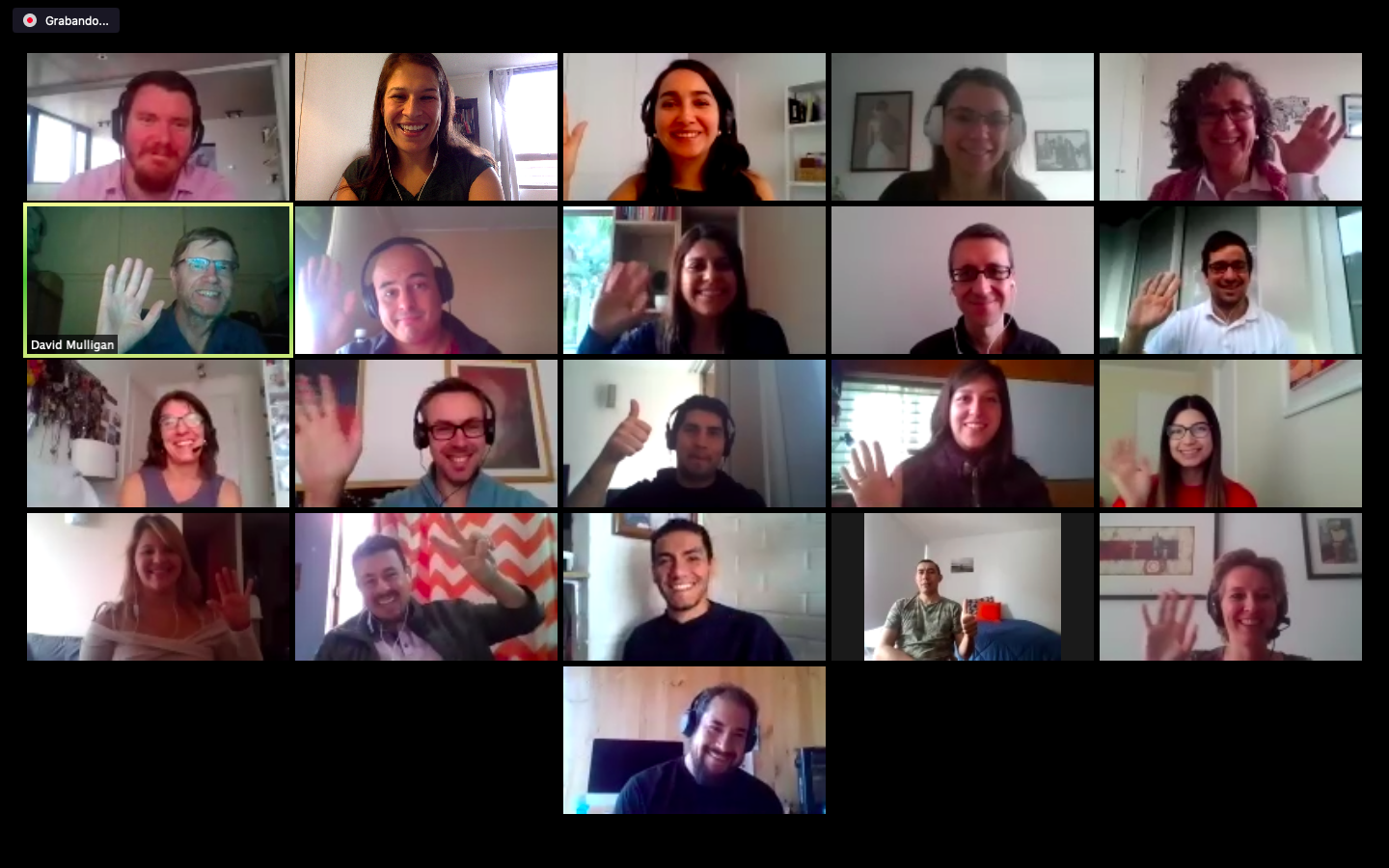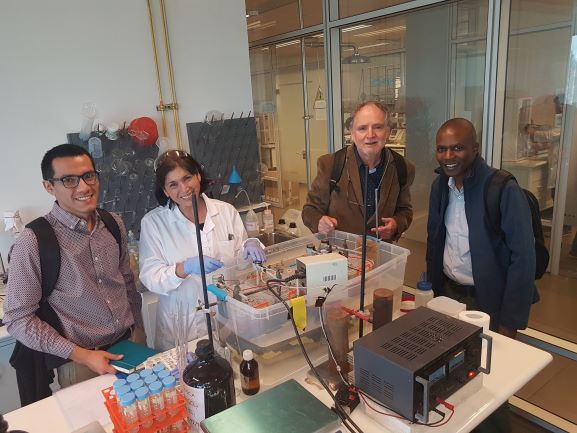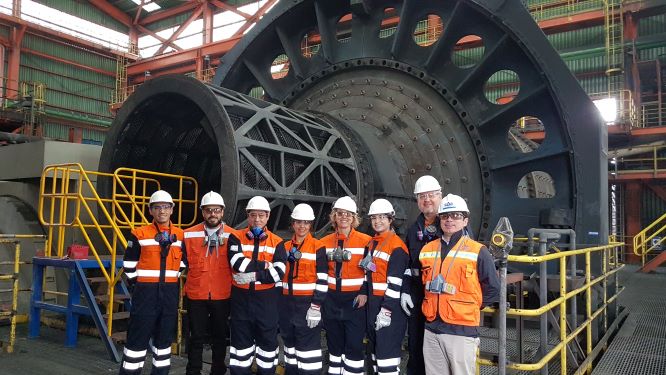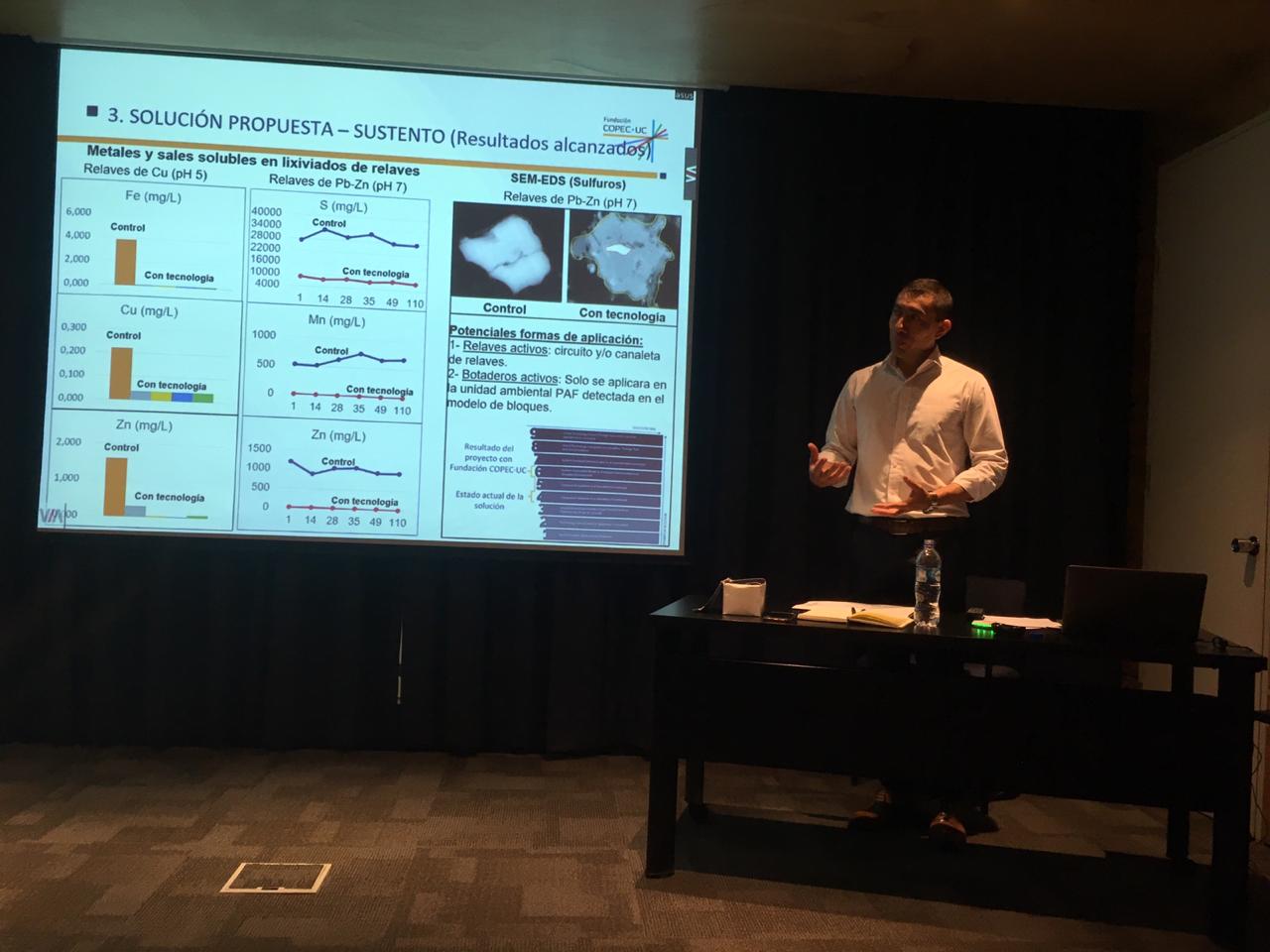
Chile has had a country-wide curfew between 10pm and 5am since late March, and the team at SMI’s International Centre of Excellence office in Santiago has experienced strict government imposed quarantine measures to contain the spread of the virus. They are self-isolating, social distancing and wearing face masks when venturing outside and overall, everyone has been managing the situation excellently.
Amidst the challenges and new work protocols, the industry has shown their continuous confidence in the projects that SMI-ICE-Chile carries out. As expected, some projects had to postpone meetings and site visits until such activities can be re-scheduled. However, some pending contracts have now been confirmed with new projects kicking off in the near future.

In 2019, SMI-ICE-Chile began a research project focussed on the behaviour of gangue minerals in copper heap leach performance at BHP’s Minera Escondida. The project looks at how gangue solubilization and re-precipitation affects copper recovery, proving to be a great opportunity to work in a multidisciplinary research team, involving the BHP Process Innovation team, the Advanced Mining Technology Center (AMTC) from Universidad de Chile, the Institute for Economic Geology from the Universidad de Concepción, and the local SMI-ICE-Chile team. More sophisticated characterisation of samples from the testwork that is carried out at laboratory scale, is expected to be performed at the Centre for Microscopy and Microanalysis at The University of Queensland. The project is scheduled to continue into 2021 and should result in the testing at pilot scale of different pre-treatment options prior to the heap leach to minimise the detrimental impact of certain gangue minerals on process performance.

Another key project in Chile is the energy efficiency study carried out upon request from CAP Minería’s magnetite ore Pellet Plant in Huasco. The study provided a great opportunity for the SMI team to join forces with the Advanced Mining Technology Centre (AMTC) from Universidad de Chile and looks at the opportunities for enhanced energy efficiency both from the point of view of plant configuration and operation, and automation and control. The scope of work was defined and aligned with the Mine Energy Transformation and Integration program from JKMRC, and SMI researchers participated in the initial site visit and several of the subsequent project activities. Part of this project was the thesis study performed by Solange Vera, a recent metallurgical program graduate from the Universidad Técnica Federico Santa María who used the JKSimMet software to model opportunities in the grinding/classification circuit. A combination of different alternatives in both the process and control have been identified, that will allow CAP Minería to reduce the specific energy consumption by approximately 10% in the pellet plant.
At the same time, a project with Codelco’s El Teniente Division to develop a strategic roadmap for water resources and tailings management to address possible future scenarios considering economic, social and environmental changes is coming to completion. The project included five workshops that involved staff from El Teniente and SMI, who worked on discussing and understanding key themes through numerous activities. Due to current circumstances, the final event of the project had to be postponed.

In the area of water management, the team has also been working on a benchmarking study of best practices in water resource management for the Chilean copper mining industry in partnership with the International Copper Association. Our researchers interviewed numerous water resource managers of some of the principal mine operations in Chile to understand how practices are changing, what novel techniques are being implemented to improve general management and water use efficiency, and about future strategies for each of the companies.
In the areas of mine closure and integrated waste management, SMI-ICE-Chile has been awarded a 24-month R&D fund from Fundación Copec-UC, a group based out of Universidad Católica de Chile, to co-develop and scale-up a technology for acid mine drainage (AMD) prevention. The project will involve laboratory and field-scale testing with porphyry Cu mine tailings and waste rock from a mine operation in Chile. This AMD preventive solution could dramatically decrease economic costs associated with current AMD treatment measures during both operational and mine closure phases, and importantly, contribute to improving the water quality accessible by surrounding communities and ecosystems. When this project is completed, the team hopes to continue scaling up this development through industrial scale testing at different mining operations in Chile and beyond.
